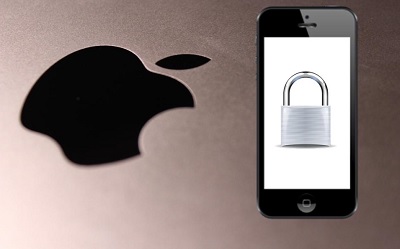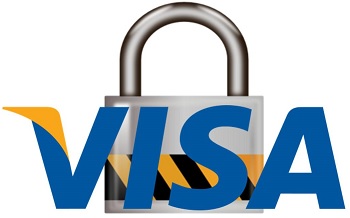BWild |
February 25, 2016
The iPhone maker is urging the American government to do this as it fights demands to unlock a San Bernardino shooter’s phone.
Apple Inc. is currently in the middle of a high profile battle in mobile security and encryption, as the company resists the demands being made by the government of the United States, in which the tech giant is being ordered to unlock the iPhone used by one of the San Bernardino shooters.
The company has now urged the American government to create a panel of experts or a commission for this subject.
The purpose of the commission being requested by Apple, would be to discuss the implications of this type of order on national, personal and mobile security, among other issues and freedoms. On the company’s own website, it shared a post entitled “Answers to your questions about Apple and security,” in which it said that “Apple would gladly participate in such an effort.” The iPhone maker went on to explain that “the best way forward would be for the government to withdraw its demands” to unlock the smartphone.
The FBI made the request of the company to break the mobile security barriers in the device, as a part of their investigation.
 The Federal Bureau of Investigation says that it wants to be able to access the contents of the iPhone used by Syed Rizwan Farook as a part its examination of the evidence that was created before the shootings in San Bernardino. Apple is being ordered to disable some of the passcode protections on the device.
The Federal Bureau of Investigation says that it wants to be able to access the contents of the iPhone used by Syed Rizwan Farook as a part its examination of the evidence that was created before the shootings in San Bernardino. Apple is being ordered to disable some of the passcode protections on the device.
On December 2, Farook and another man, Tashfeen Malik, opened fire at a holiday party in San Bernardino, California, murdering 14 people and leaving another 22 people injured. A police shootout ensued and both attackers were killed.
In response to the demands that it has received, Apple has said that, while it is technically able to unlock the iPhone through the creation of a new operating system, a precedent could be established that might lead to dangerous situations in mobile security and privacy freedoms. It underscored the fact that it has never unlocked a smartphone on behalf of law enforcement, though it has previously extracted data from one of its devices that had been operating on an older version of iOS when following a “lawful court order.”
The U.S. Department of Justice has now filed a motion to attempt to force Apple’s compliance in breaking through the mobile security of the device and unlock the iPhone.
Visa Europe will be expanding its innovative tokenization service to support cloud-based transactions
Visa Europe is expanding its tokenization service to support cloud-based transactions coming from the mobile payments platforms that banks are using. The organization is responding to growing demand for payment support for mobile devices throughout Europe. Many consumers are beginning to rely on their mobile devices to shop online and in physical stores, which they consider to be more convenient than conventional forms of commerce. They also want to ensure that the services they are using are secure, which is where tokenization comes into play.
Tokenization has helped consumers become more comfortable with the concept of mobile commerce
Tokenization allows mobile payments to be made securely. Through a typical payment system, financial information is transferred digitally, allowing consumers to make payments online. Tokenization replaces this information with digital tokens, which can be used to authenticate transactions. These tokens are unique for every transaction, ensuring that consumer information is kept safe. Visa has become a pioneer in tokenization, which has helped consumers become more confident in the security of mobile commerce.
Half of all Visa transactions expected to come from mobile devices by 2020
 The expansion of the Visa Europe Payment Tokenization Service will allow banks and other organizations to take advantage of tokenization. By 2020, Visa Europe predicts that one in five consumers will pay for products using their smartphones and other devices on a daily basis. Mobile will account for 50% of all Visa transactions made by that time, which has highlighted the need for secure services. Security is a top priority for banks, especially as consumers become more mobile-centric.
The expansion of the Visa Europe Payment Tokenization Service will allow banks and other organizations to take advantage of tokenization. By 2020, Visa Europe predicts that one in five consumers will pay for products using their smartphones and other devices on a daily basis. Mobile will account for 50% of all Visa transactions made by that time, which has highlighted the need for secure services. Security is a top priority for banks, especially as consumers become more mobile-centric.
Embracing tokenization could allow retailers to find more success in mobile shopping
Visa Europe’s tokenization system will allow more merchants to enter into the mobile payments ecosystem. This is good news for retailers, as they can find major success by engaging mobile consumers. If they can provide secure services, they will have a better chance of connecting with consumers and providing them with an enjoyable and safe shopping experience. Visa has managed to improve the mobile commerce space significantly through its tokenization service, which has been praised by retailers and financial institutions.
 The Federal Bureau of Investigation says that it wants to be able to access the contents of the iPhone used by Syed Rizwan Farook as a part its examination of the evidence that was created before the shootings in San Bernardino. Apple is being ordered to disable some of the passcode protections on the device.
The Federal Bureau of Investigation says that it wants to be able to access the contents of the iPhone used by Syed Rizwan Farook as a part its examination of the evidence that was created before the shootings in San Bernardino. Apple is being ordered to disable some of the passcode protections on the device.
 The expansion of the Visa Europe Payment Tokenization Service will allow banks and other organizations to take advantage of tokenization. By 2020, Visa Europe predicts that one in five consumers will pay for products using their smartphones and other devices on a daily basis. Mobile will account for 50% of all Visa transactions made by that time, which has highlighted the need for secure services.
The expansion of the Visa Europe Payment Tokenization Service will allow banks and other organizations to take advantage of tokenization. By 2020, Visa Europe predicts that one in five consumers will pay for products using their smartphones and other devices on a daily basis. Mobile will account for 50% of all Visa transactions made by that time, which has highlighted the need for secure services. 